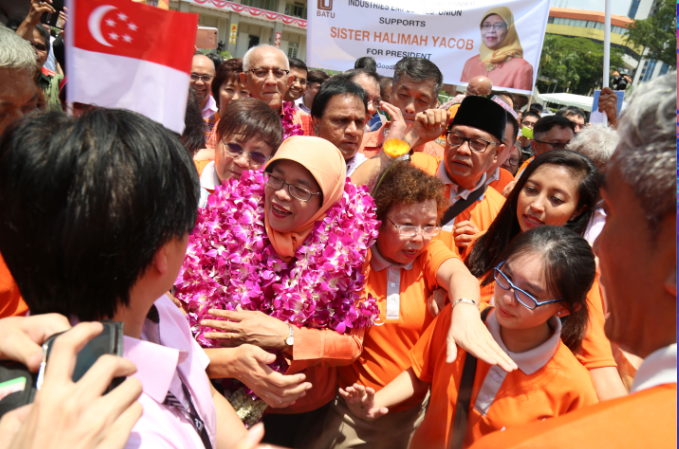Singapore: President Halimah Yacob, whose six-year term concludes this year, emphasized the significance of the 2017 reserved election, asserting it w
Singapore: President Halimah Yacob, whose six-year term concludes this year, emphasized the significance of the 2017 reserved election, asserting it was a crucial step to protect the nation’s multicultural fabric.
The People’s Action Party (PAP) Government amended the Singapore Constitution in 2016, laying the groundwork for the reserved election. One key amendment stipulated that if a racial group is unrepresented for five terms or 30 years, a presidential election would be reserved for that group. Should there be no eligible candidates from the designated group, the election would then be opened to all races, with the reserved election postponed to the next cycle.
Additionally, eligibility criteria for candidates underwent revisions. Previously, private sector candidates were required to be senior executives managing companies with a paid-up capital of at least S$100 million. This was increased to a requirement of S$500 million in shareholders’ equity.
Less than two months following these changes, Prime Minister Lee Hsien Loong announced that the 2017 Presidential Election would specifically be reserved for candidates from the Malay community. Interestingly, the counting for the reserved election commenced from Dr. Wee Kim Wee, the first President to exercise the powers of the Elected Presidency, rather than from Ong Teng Cheong, Singapore’s first elected President.
These constitutional changes sparked allegations that the Government was leveraging the need to preserve racial harmony to obstruct the candidacy of Tan Cheng Bock, who narrowly lost the 2011 presidential election to Tony Tan Keng Yam. The Government has refuted these claims.
While critics have contended that the reserved election is unnecessary—arguing that voting patterns in Singapore do not predominantly follow racial lines—the Parliament ultimately passed the amendment on November 9, 2016, reserving the 2017 presidential election for the Malay community.
Applications for the reserved election opened on June 1, 2017. Halimah Yacob, then a PAP MP and Speaker of Parliament, stepped down from her political role to contest the election. Despite interest from two candidates in the private sector, Halimah was declared the only eligible candidate in September 2017, subsequently becoming Singapore’s first female president uncontested.
Looking back, Halimah anticipated controversy upon entering the reserved election. In an interview with the Straits Times, she stated, “Public office is never a walk in the park. You have to expect to be scrutinized, criticized, and questioned… So I expected that, and it happened… but you just stay focused.”
Despite the criticism, she firmly believes that the reserved election was essential for safeguarding Singapore’s multiculturalism.



COMMENTS